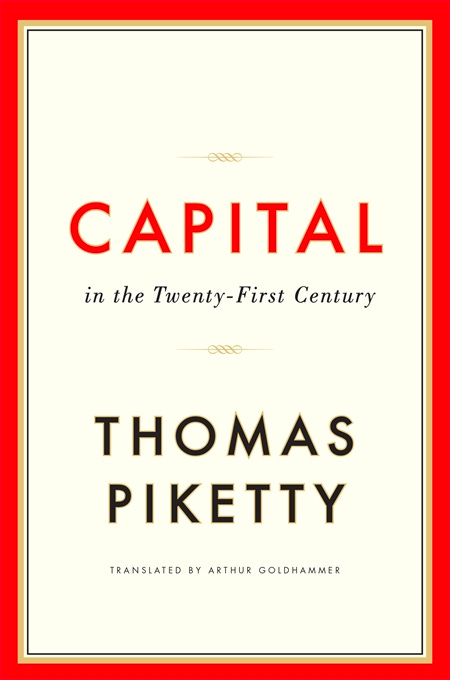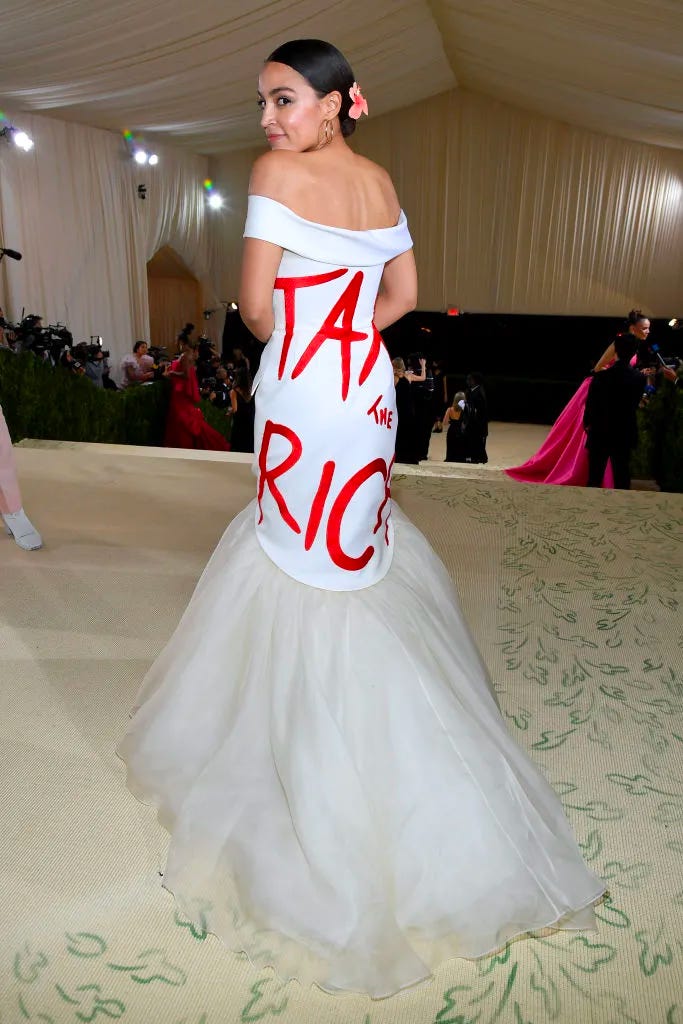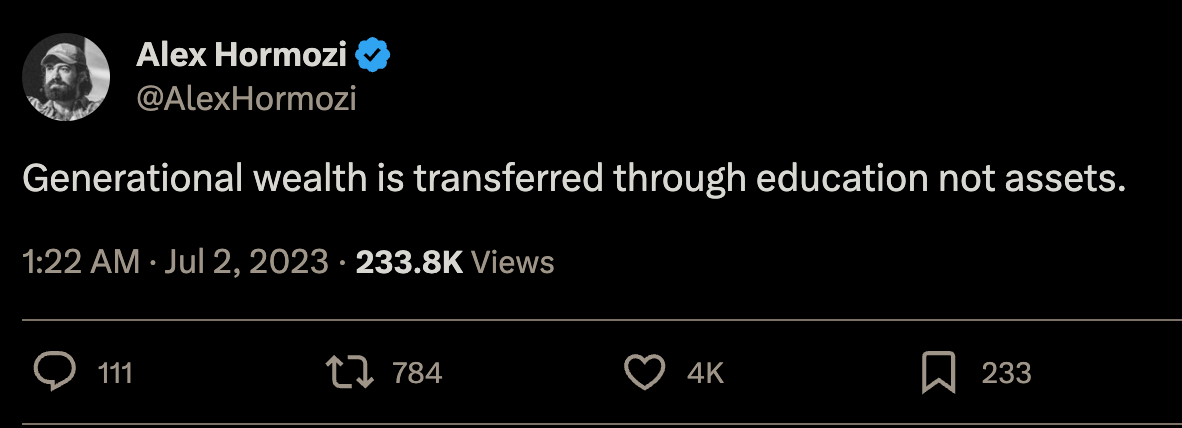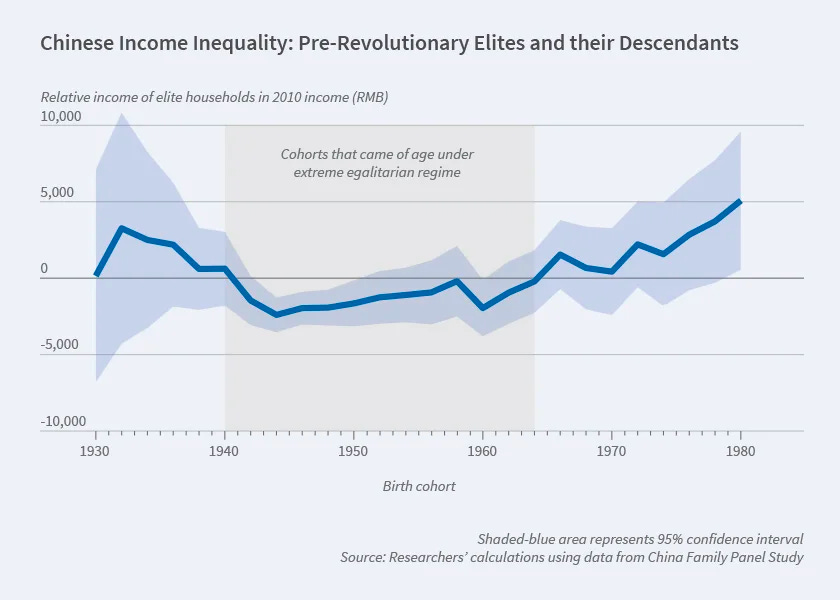Capital in the Twenty-First Century
Along the most important dimension, we live in a more equal world than ever
In 2013, French economist Thomas Piketty wrote the book Capital in the Twenty-First Century.
Piketty uses 250 years of economic data to argue that under free market capitalism, inequality tends to worsen when the rate of return on capital exceeds overall economic growth, leading to concentration of wealth.
He contends this increasing inequality inherent in capitalism risks democratic values unless policies like a progressive global wealth tax intervene.
The Statistics
We are constantly inundated by the latest statistics on inequality.
Just to name a few:
The top 1% of the global population owns 38% of the world’s wealth, while the bottom 50% owns only 2% of the global wealth.
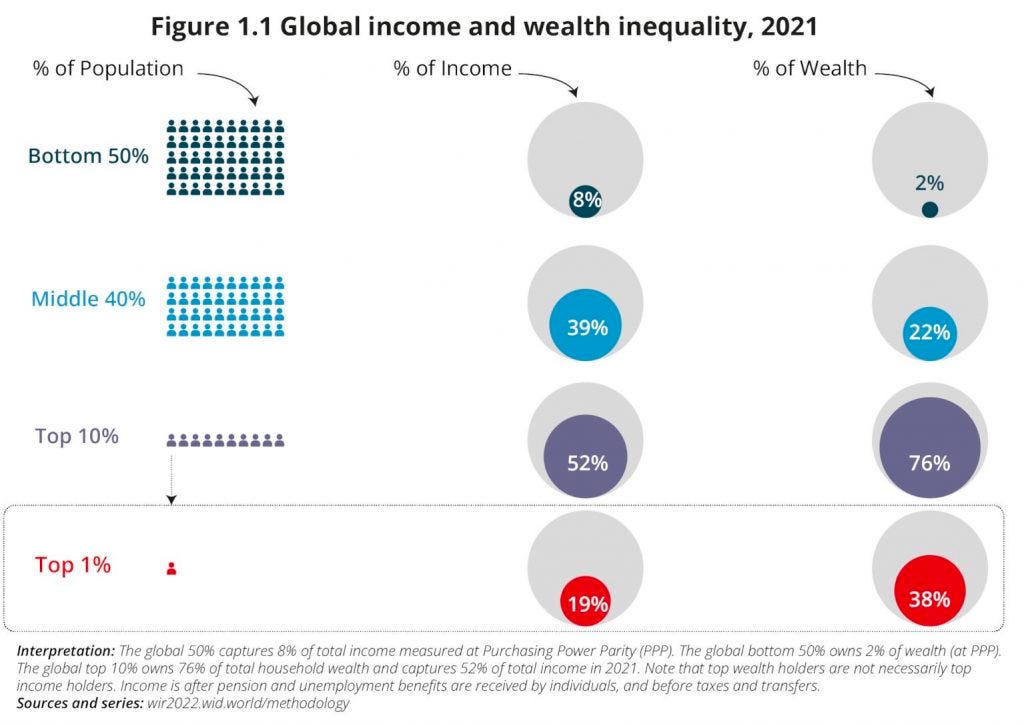
Source: World Inequality Database It's even more unequal in the United States, where the top 1% hold 40.5% of the wealth.
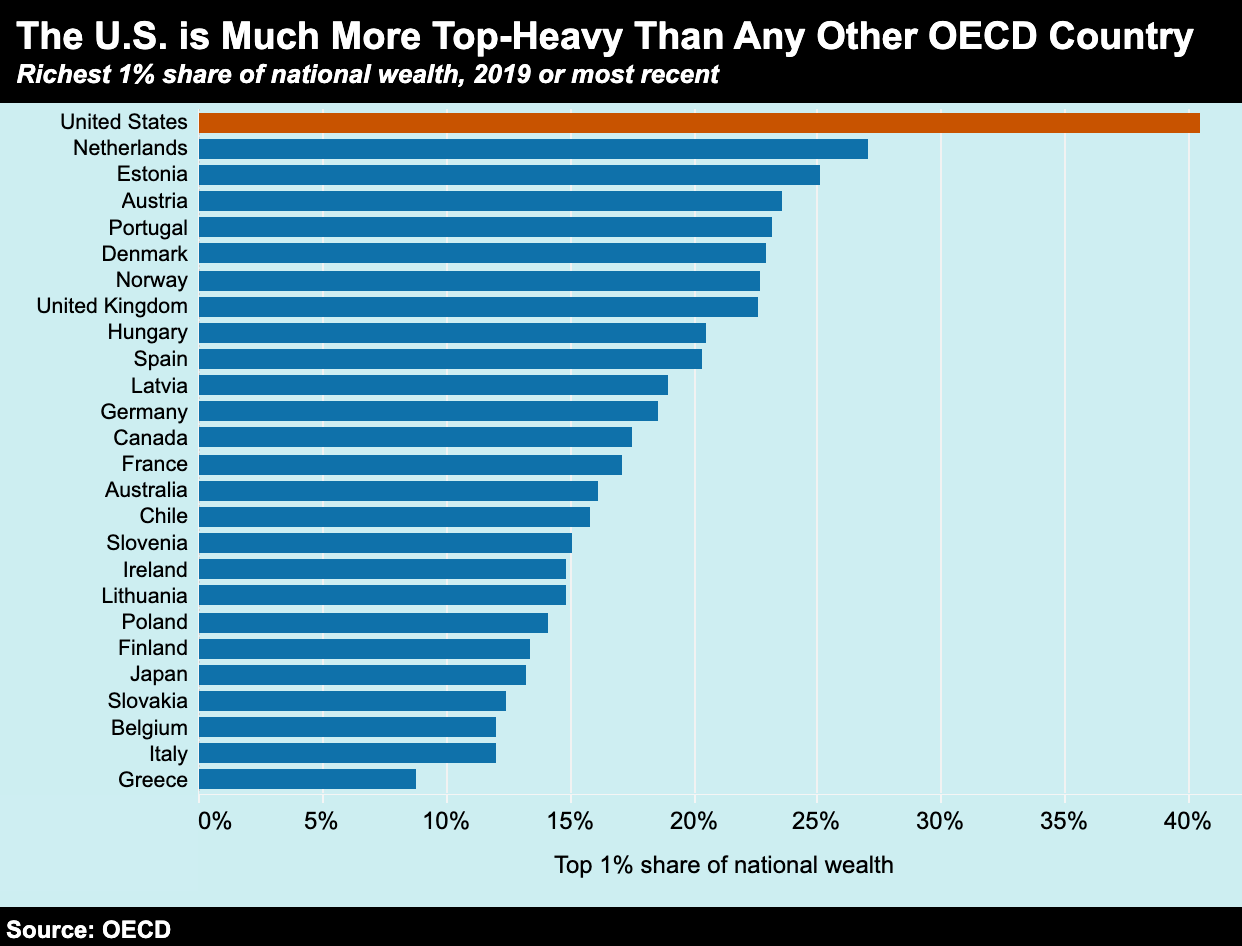
Source: Inequality.org The bottom 50% of the Americans have a total wealth of just $3.6 billion.
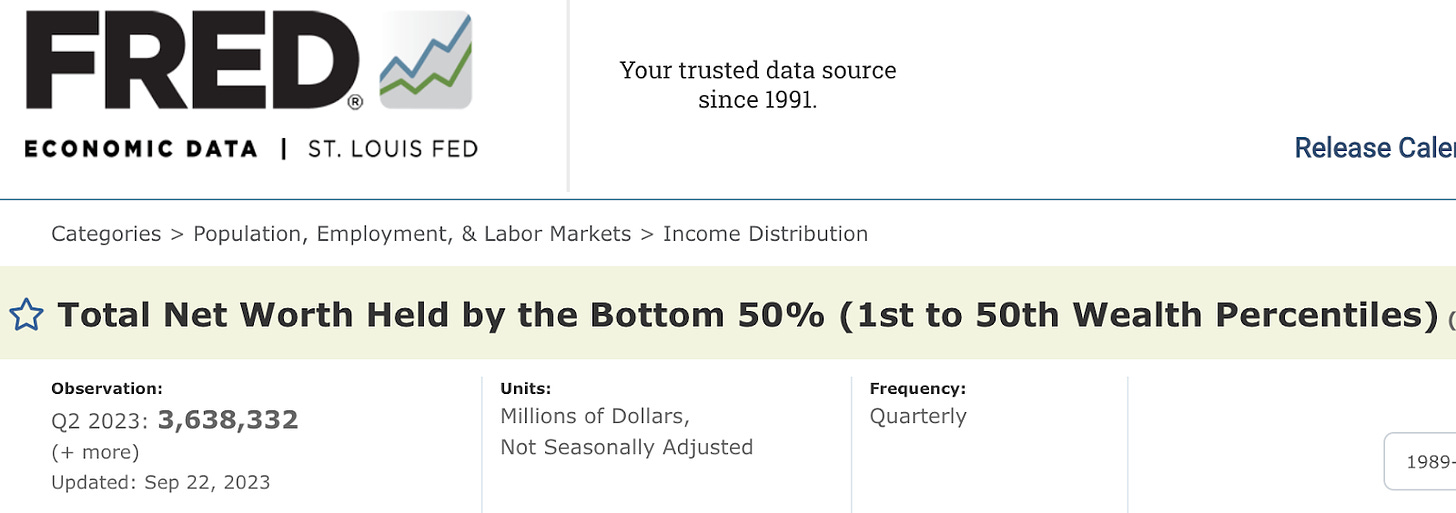
Source: Federal Reserve Economic Data
Put another way, the combined wealth of the bottom 167 million Americans wouldn't even make the Bloomberg Billionaires list, where the world's 500th richest person, Patrick Collison as of Nov 15, 2023, has a $5.1 billion net worth.
These 167 million Americans have the same combined amount of wealth ($3.6 billion) as the 314th richest American does alone.
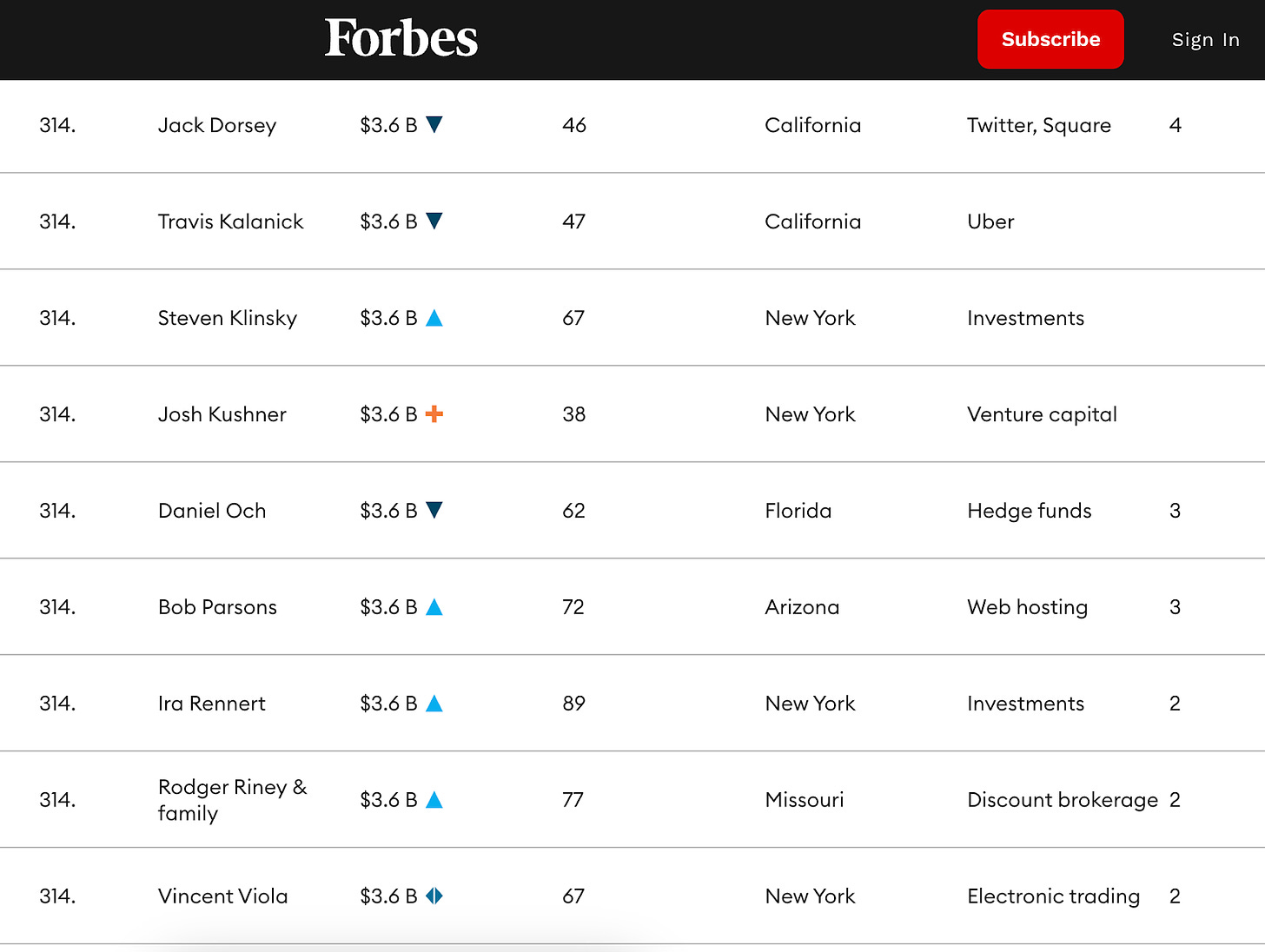
Just one low single-digit billionaire, e.g. Donald Trump's son-in-law's younger brother Josh Kushner, has as much wealth to his name as the bottom 167 million Americans combined.
Single digit billions is far lower than the wealth of Jeff Bezos, Elon Musk, Bill Gates, Warren Buffett, or any of the extremely wealthy billionaires with household names, whose wealth is dozens of times more. This is Josh Kushner's wealth alone.
The left sees this massive inequality as a sign to tax the rich, the 1%.
The right sees massive inequality as a sign of the lazy, entitled welfare class (i.e. Romney’s 47%) refusing to work, instead preferring to rely on the government for handouts.
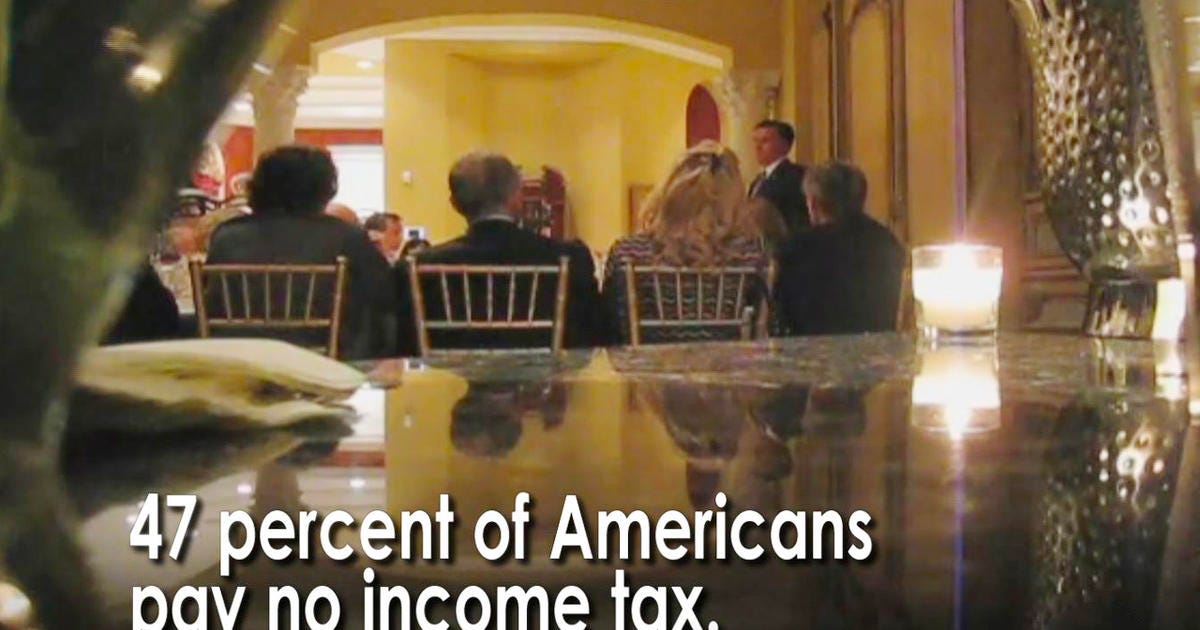
No one cares to look past these dire statistics and focus on what unites us, the 100%.
The Internet Unites Us
What's great about this country is that America started the tradition where the richest consumers buy essentially the same things as the poorest. You can be watching TV and see Coca-Cola, and you know that the President drinks Coke, Liz Taylor drinks Coke, and just think, you can drink Coke, too. A Coke is a Coke and no amount of money can get you a better Coke than the one the bum on the corner is drinking. All the Cokes are the same and all the Cokes are good. Liz Taylor knows it, the President knows it, the bum knows it, and you know it.
- Andy Warhol, The Philosophy of Andy Warhol (1975)
The Internet has spread this Coca-Cola phenomenon to far more products.
Rich people use the same Google, YouTube, Twitter/X, TikTok, Substack, and ChatGPT1 as poor people do.
Poor kids who have a smartphone have access to the world's smartest, most knowledgeable tutor (ChatGPT), whose abilities triple every two years2.
Imagine what is possible in a world where every curious child has the world's knowledge at their fingertips, where they can ask a question to AI Warren Buffett or Elon Musk and get a great answer instantly based on all their published content and life experiences.
Historically, the guidance of highly educated mentors was a privilege limited to only the very rich and well-connected.
Today, with AI, everyone—rich or poor, prominent or unknown—can have their own personalized mentor.
The Internet is the Ultimate Mentor
In his book Mastery, Robert Greene talks about how you need mentors to achieve mastery.
Greene goes as far as to explicitly discourage learning primarily from books, the only source of information for an obscure but ambitious young person before the Internet.
The information in books is not tailored to your circumstances and individuality; it tends to be somewhat abstract. When you are young and have less experience of the world, this abstract knowledge is hard to put into practice.
The Internet provides specific guidance for putting abstract knowledge into practice because unlike with text, tacit knowledge can be transferred through video.
YouTube University: Tuition-Free and Open 24/7
Sociologist and political consultant Samo Burja writes:
Critically overlooked is its [YouTube's] unlocking a form of mass-scale tacit knowledge transmission which is historically unprecedented, facilitating the preservation and spread of knowledge […]
Tacit knowledge is knowledge that can’t properly be transmitted via verbal or written instruction, like the ability to create great art or assess a startup. […]
Before video became available at scale, tacit knowledge had to be transmitted in person, so that the learner could closely observe the knowledge in action and learn in real time — skilled metalworking, for example, is impossible to teach from a textbook. […]
Learners who wish to acquire tacit knowledge, but who are unable to figure things out on their own, are therefore limited by their access to personal observation of skilled people.
Massively available video recordings of practitioners in action change this entirely. Through these videos, learners can now partially replicate the master-apprentice relationship, opening up skill domains and economic niches that were previously cordoned off by personal access.
In his article the YouTube learning machine, Trung Phan mentions how 19 year old NBA players today are demonstrating basketball skills previously perfected by 30+ year old players, asserting that this is largely due to the rise of YouTube and how it has enabled aspiring young players to closely mimic the plays of the best NBA players.
Cameroon-born "Joel Embiid — the 7’0 star centre for the Philadelphia 76ers — credits YouTube for his own development."
Embiid writes about how he learned basketball:
So I’m chilling one night, and I go on YouTube, and I’m thinking I’m about to figure this shooting thing out.
I go to the search box like….
HOW TO SHOOT 3 POINTERS.
Nah.
HOW TO SHOOT GOOD FORM
Nah.
Then the light bulb went off, man. I typed in the magic words.
WHITE PEOPLE SHOOTING 3 POINTERS.
Listen, I know it’s a stereotype, but have you ever seen a normal, 30-year-old white guy shoot a three-pointer? That elbow is tucked, man. The knees are bent. The follow-through is perfect. Always.
I seriously got to the league by watching YouTube and living in the gym.
Increasingly, the best basketball players in the world get there by watching YouTube and learning precisely how to play great basketball from the best practitioners of the sport.
As young people with no money or connections, they could never hope to meet these legends, let alone be coached by them, but because of YouTube, all they need is athleticism, hard work, and determination to make it to the top basketball league in the world.
Besides basketball, YouTube has an infinite number of videos about every subject under the sun.
YouTube has 2B+ monthly active users and one Pew survey found that 51% of users are on the platform to figure out “how to do things they haven’t done before”.
There will be millions of Joel Embiid’s in every field who started out with little money and connections and achieved success by watching YouTube, reading Substack or Twitter3, and living in their proverbial gym, getting the 10,000 iterations needed to reach mastery.
Robert Greene’s Mastery needs to be updated because the Internet is the greatest mentor ever. It is both all knowing and will never hold you back4 from learning and achieving more.
The Best Things in Life Are (Almost) Free
There has never been a better time in history to be poor, smart, and ambitious.
Anyone with a smartphone today has better access to knowledge and expertise than a Harvard graduate from the most illustrious family 20 years ago (don’t @ me, Harvard alums).
In March 2023, renowned venture capitalist Marc Andreessen wrote:
We are heading into a world where a flat screen TV that covers your entire wall costs $100, and a four year college degree costs $1 million, and nobody has anything even resembling a proposal on how to systemically fix this.
Andreessen meant this negatively, but it's worth noting that that $100 digital device becomes more useful and provides more knowledge over time while that $1 million college education becomes less and less necessary and valuable as a result.
Young people are wising up to this new reality. Over the past decade,
The percentage of young adults who said that a college degree is very important fell to 41 percent from 74 percent. Only about a third of Americans now say they have a lot of confidence in higher education.
A Word from Our Favorite Dropout
"Everything around you that you call life was made up by people that were no smarter than you. And you can change it. You can influence it. You can build your own things that other people can use."
- Steve Jobs, cofounder of Apple (world’s largest company)
Because of the internet, more underprivileged children will see that clip and live a different life than they otherwise would have.
(Knowledge) Capital in the 21st Century is More Distributed Than Ever
While financial inequality is higher than ever, knowledge inequality is lower than ever, and knowledge is perhaps the most important form of capital.
Knowledge can't be lost, only accumulated or forgotten.
Knowledge can't be inherited, only learned.
Knowledge can't be stolen or scammed from its holder, only copied.
Knowledge can't be squandered, only unused. It is like untapped oil underground or sunlight in a place without solar panels.
Knowledge is perpetually renewable. It can't be used up, only spread.
This is why knowledge, imparted through education, is the conduit for generational wealth.
A natural experiment during one of the darkest periods of human history proves the enduring value of knowledge and education compared to financial capital.
The Chinese Experiment
After the Communists swept to power in China in 1949, the Party confiscated land and businesses from the elite and redistributed it to the working class.
Yet decades later, after economic reforms in the country, the children and grandchildren of elites purged during the Chinese Communist Revolution regained their families’ socioeconomic status, in no small part because of the knowledge and habits passed down to them by their parents.
After the Communist Revolution, the working class benefited from wealth and educational opportunities that previously belonged exclusively to the elite, yet that financial and human capital was worth far less than the knowledge capital from previously wealthy parents.
Now, because of the Internet, that knowledge belongs to anyone who wants it badly enough.
The Gini coefficient only measures wealth and income inequality, not knowledge inequality, which is lower than it has ever been in human history.
In a globally networked world where anyone with a smartphone has the power to learn anything from anyone, knowledge is the ultimate superpower.
Be a sponge for knowledge.
Comment, like, restack, subscribe!
About
Inverteum Limited (HK) is a trading firm that specializes in long-short algorithmic strategies to generate returns in both bull and bear markets.
We have generated 52% annualized returns (39% after fees) since inception and are currently closed to new investors.
More from Inverteum Capital
Based on the current trajectory and funding of AI innovation, tripling in two years may be a significant understatement. Venture capitalist and All-In Podcast host Chamath Palihapitiya expects an 800-1600x improvement in AI by 2026.
Substack and Twitter are the text equivalents of YouTube. You can learn about anything you want.
To the master goes the knife (Al maestro cuchillada)




